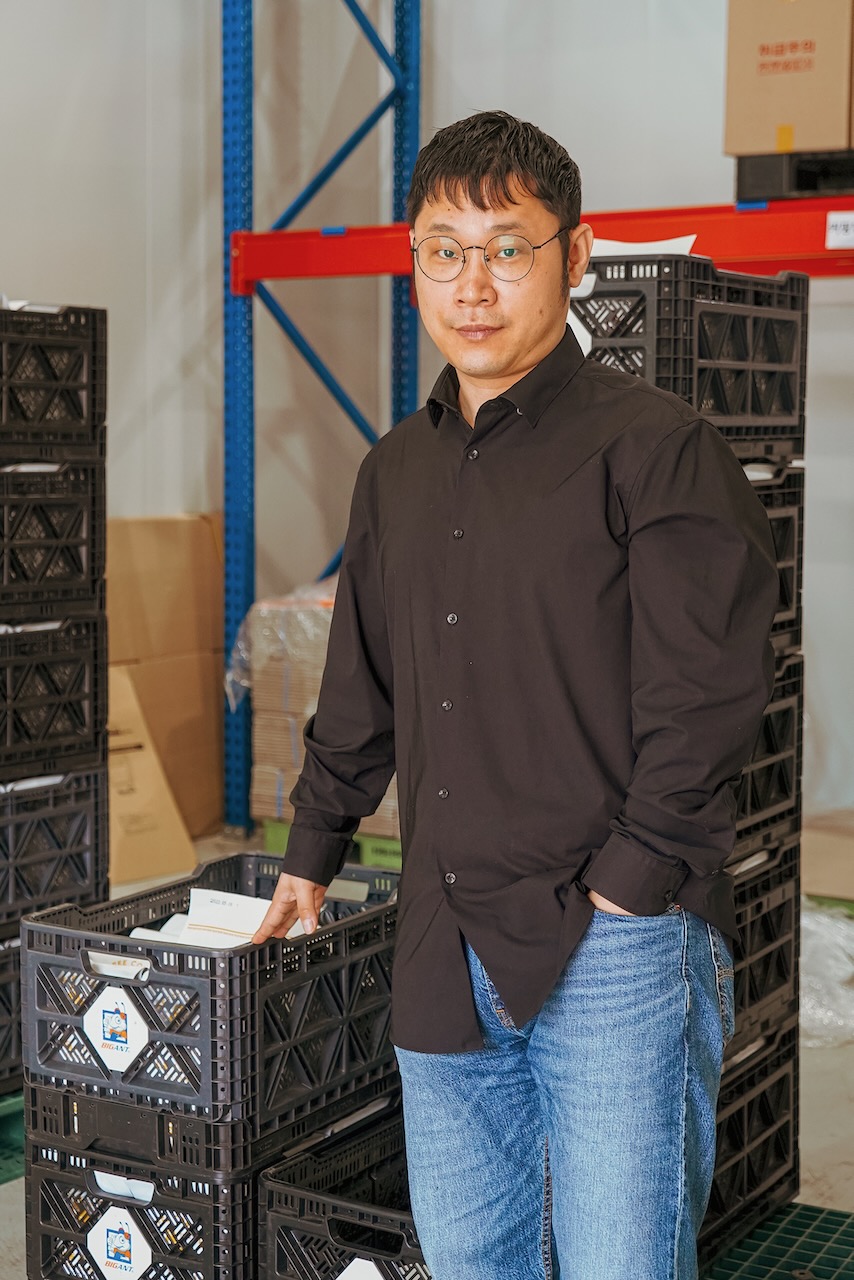
Creating Community of Mutual Growth: In Pursuit of Value Beyond Taste
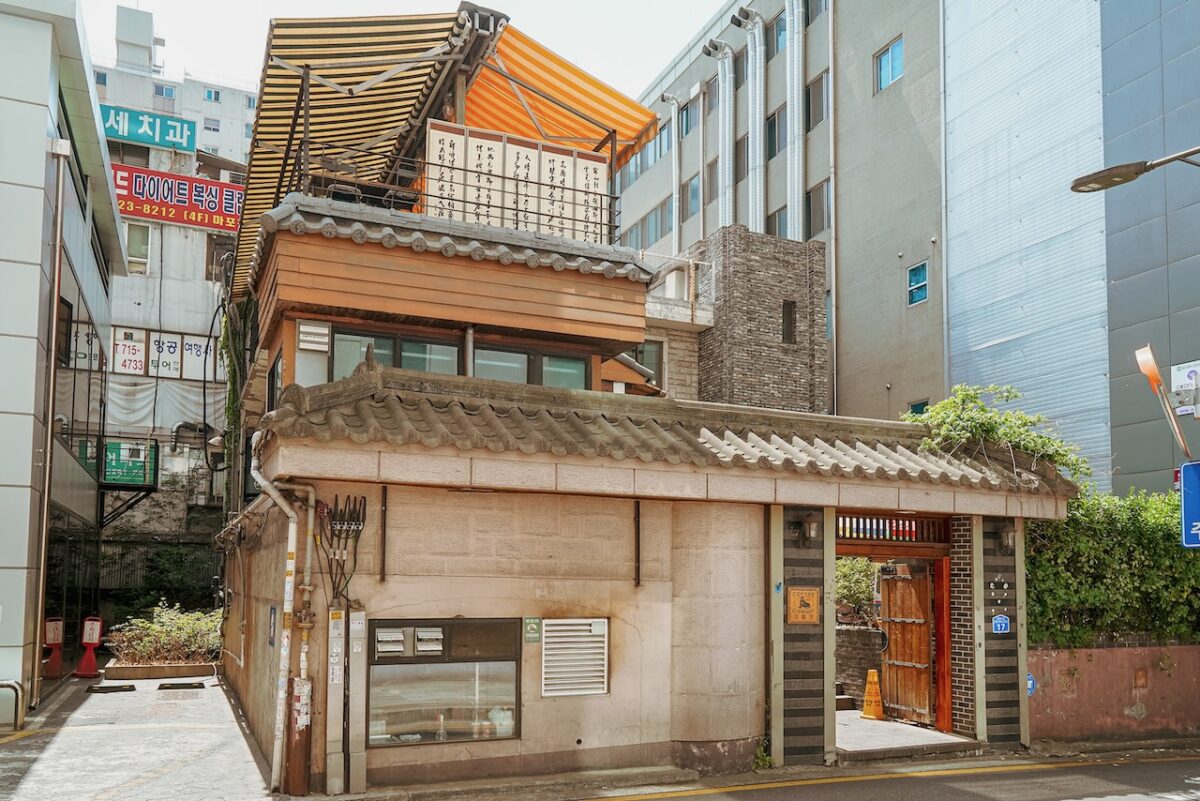
Fritz Coffee Company directly imports over 90% of its green coffee supplies and roasts them on-site. With a network of four cafes across Seoul, the company also wholesales coffee beans to around 850 mainly domestic clients, making a great impact on the South Korean coffee industry. Also garnering attention is its organization structure, where all of its roughly 90 employees are hired on a full-time basis.
Its five co-founders were already highly skilled and well-known even before starting the company. They include a famous green coffee buyer, a winner of the South Korean barista championship and a roaster. How did they end up founding a business together? To find out, we interviewed Kim Dohyun, one of the co-founders who’s in charge of roasting and financing.
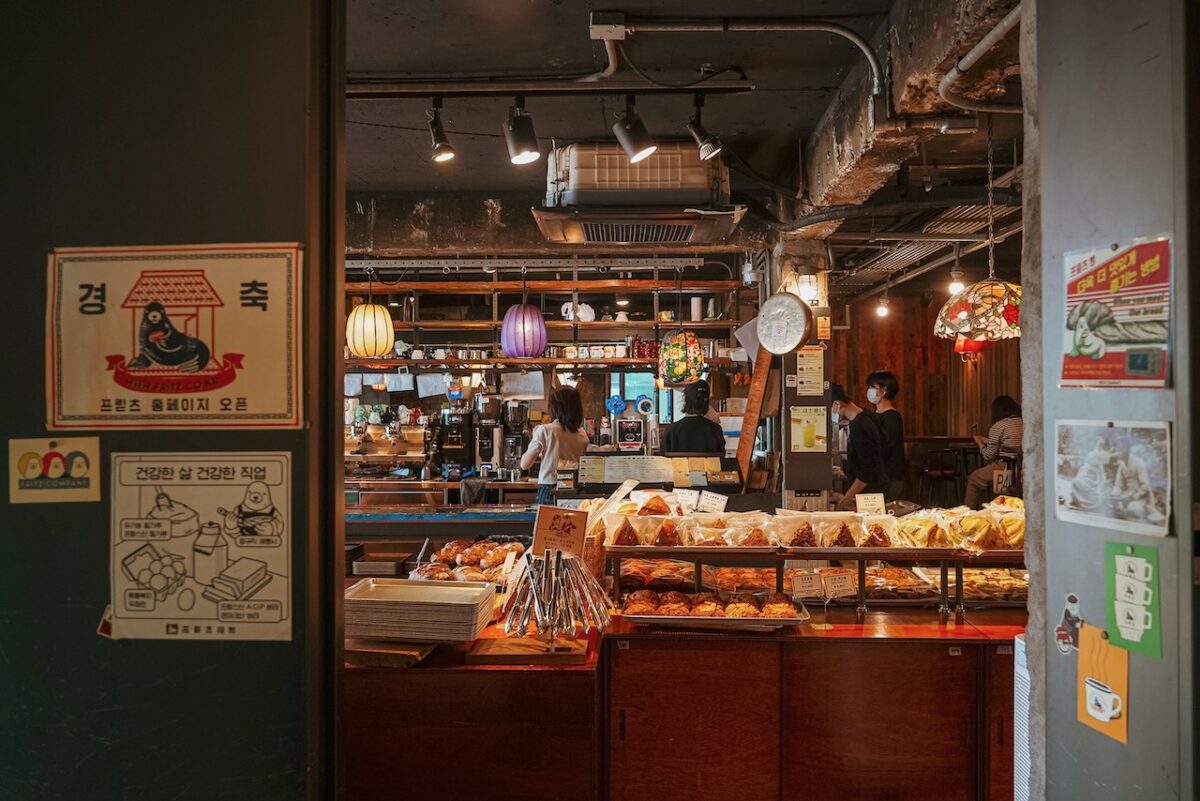
Starting with Philosophy
Fritz Coffee’s shops, from its first location built in the Hanok traditional architectural style to its third evoking a 1950-60’s South Korean hotel, boast fashionable aesthetics with a retro charm in their interiors and exteriors alike. Hangul letters run across the company’s logo featuring a fur seal – All this is a reflection of the company’s “Korean Vintage” concept, under which it actively incorporates South Korean culture.
The shops serve not only coffees carefully brewed by baristas, but also freshly baked bread made by a team specialized in bread production. These places harken back to a bygone era when time passed leisurely by. Customers get to enjoy a rich moment of respite from the hustle of city life while tasting delicious food and drinks.
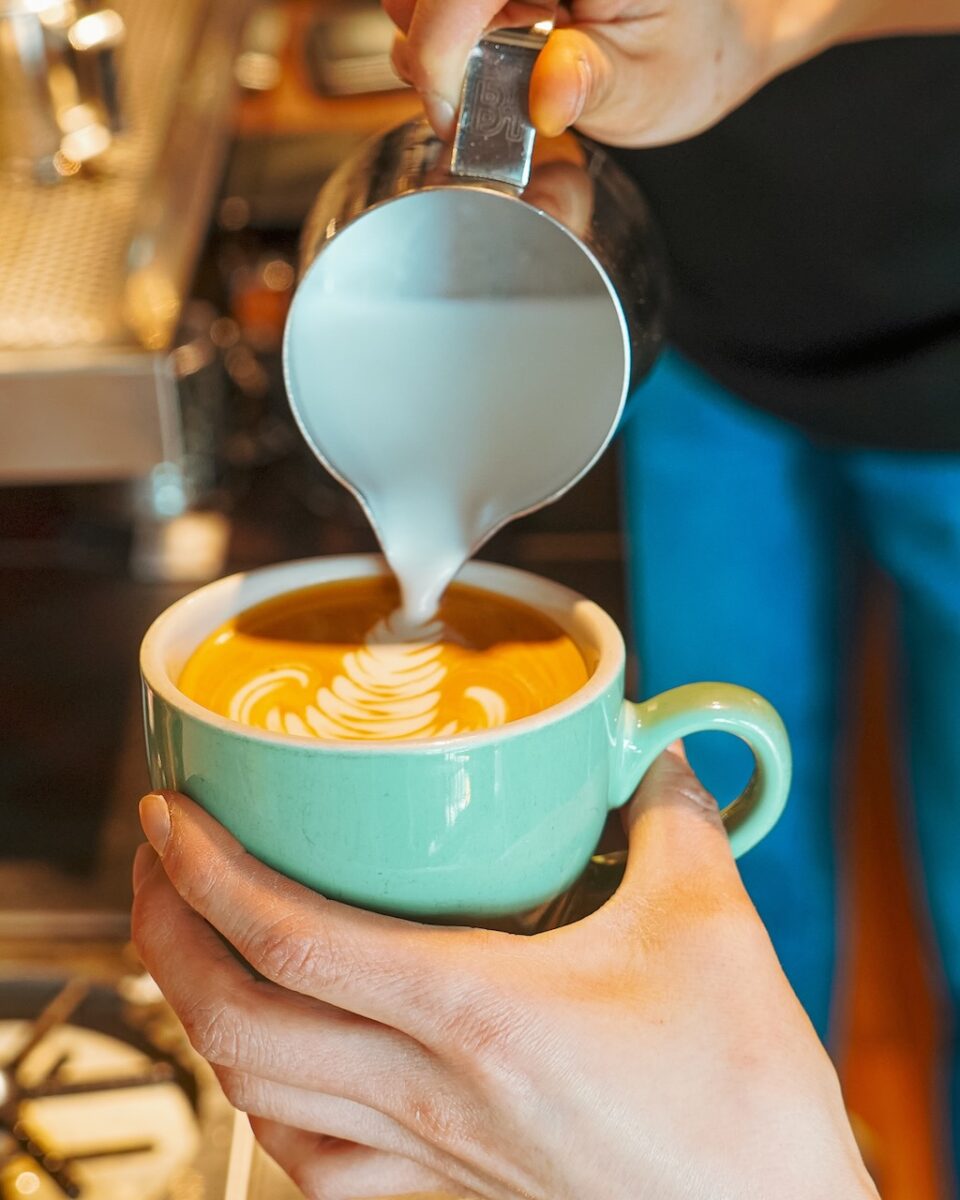
The five co-founders, who had long been good friends, started to think about starting a business together after they won a barista championship as a team. Later on, they were joined by a baker friend, and the six of them started out by discussing what would be the meaning of them running a company together.
“We thought there would be no point in quitting our jobs and starting a company if all we would do was to open a fashionable cafe that only served delicious coffee. So for a long time, we discussed the why – if we really had a compelling reason for starting a business together.”
Just because they are good friends doesn’t mean they share the same values or ways of thinking. Opinions clashed at times. But after months of tenacious discussions, they arrived at a common philosophy: to convey value that’s more than just taste as a community of the highly motivated.
“If I were thinking alone, I wouldn’t have been able to come up with a philosophy that could win over the others. All five of them were essential to that process.”

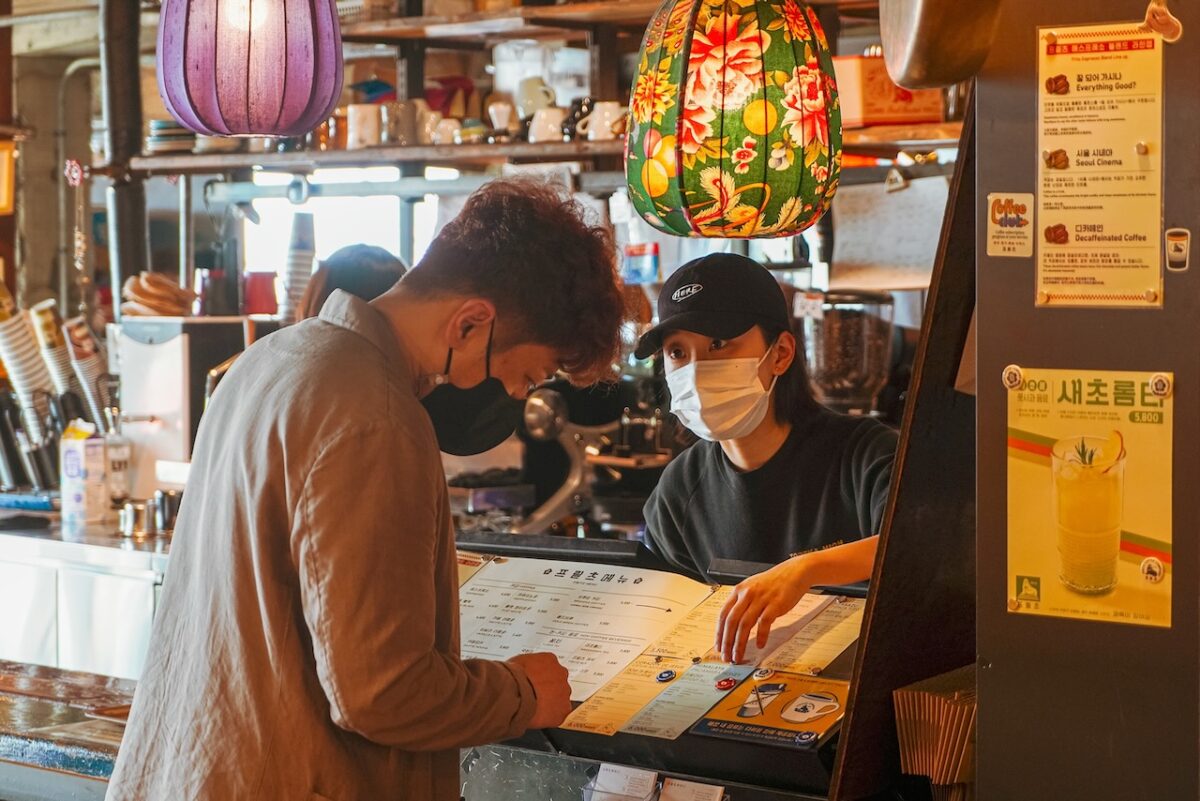
Deliciousness more than just matter of taste
The management then talked about how they could convey “value that’s more than just taste.”
“Obviously, it’s important to serve delicious things. But we thought that when customers think something is delicious, there is a mix of various factors at play, other than taste itself.”
For instance, some people are sensitive to caffeine but like to go to cafes. So coffee doesn’t have to be the star of a cafe. If Fritz Coffee can be a place for someone to enjoy conversation, in the same way cafes are to me, then we can say coffee plays a great role.”
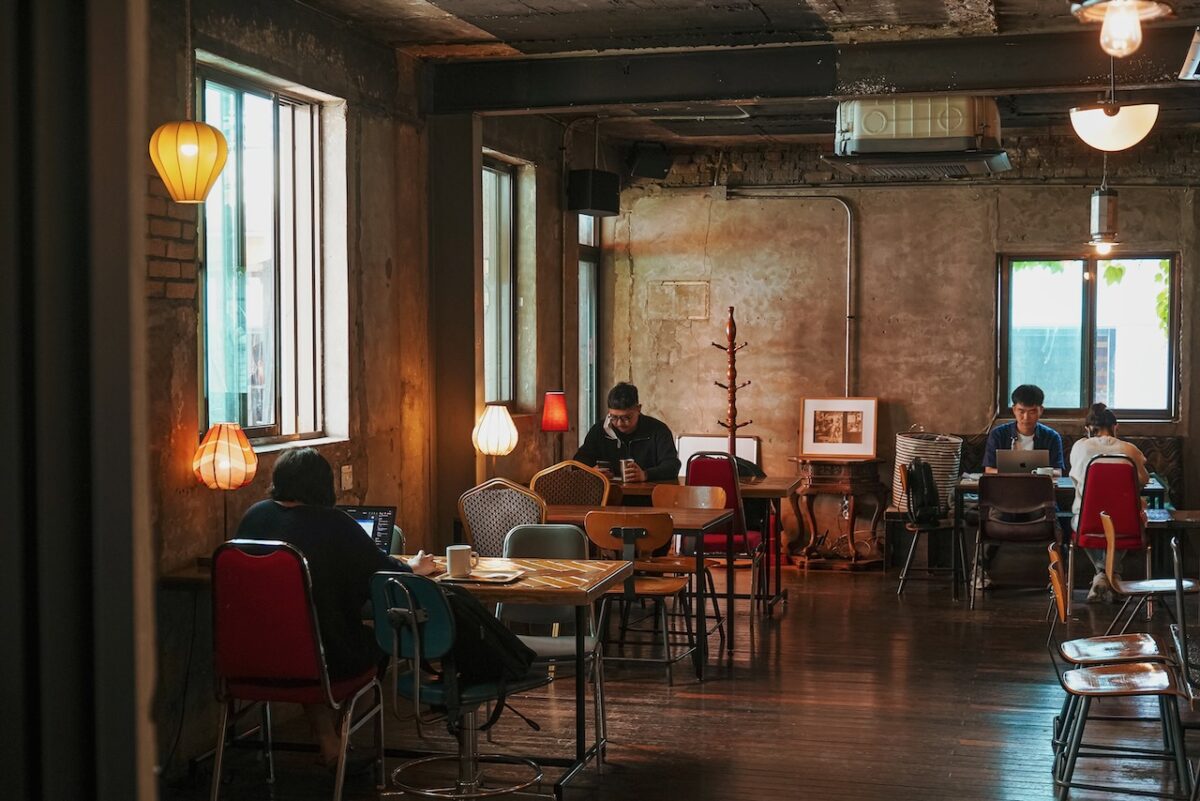
At Fritz Coffee shops, music is kept at a low volume so it won’t interfere with conversation between customers. Each location is furnished with an open bar counter to allow customers to chat with staff and watch as baristas prepare their drinks. Offerings include simple coffees and bread anyone can enjoy. The company’s attention to detail also extends to interiors and decors designed to express the Korean Vintage concept, now the identity of Fritz Coffee.
Fritz Coffee sees design as “a language to connect with customers, something very important,” Kim says. The company has an in-house team of three designers and a cameraman dedicated to visual productions. By designing and expressing its worldview down to the smallest of details, Fritz Coffee has cultivated a culture of its own.

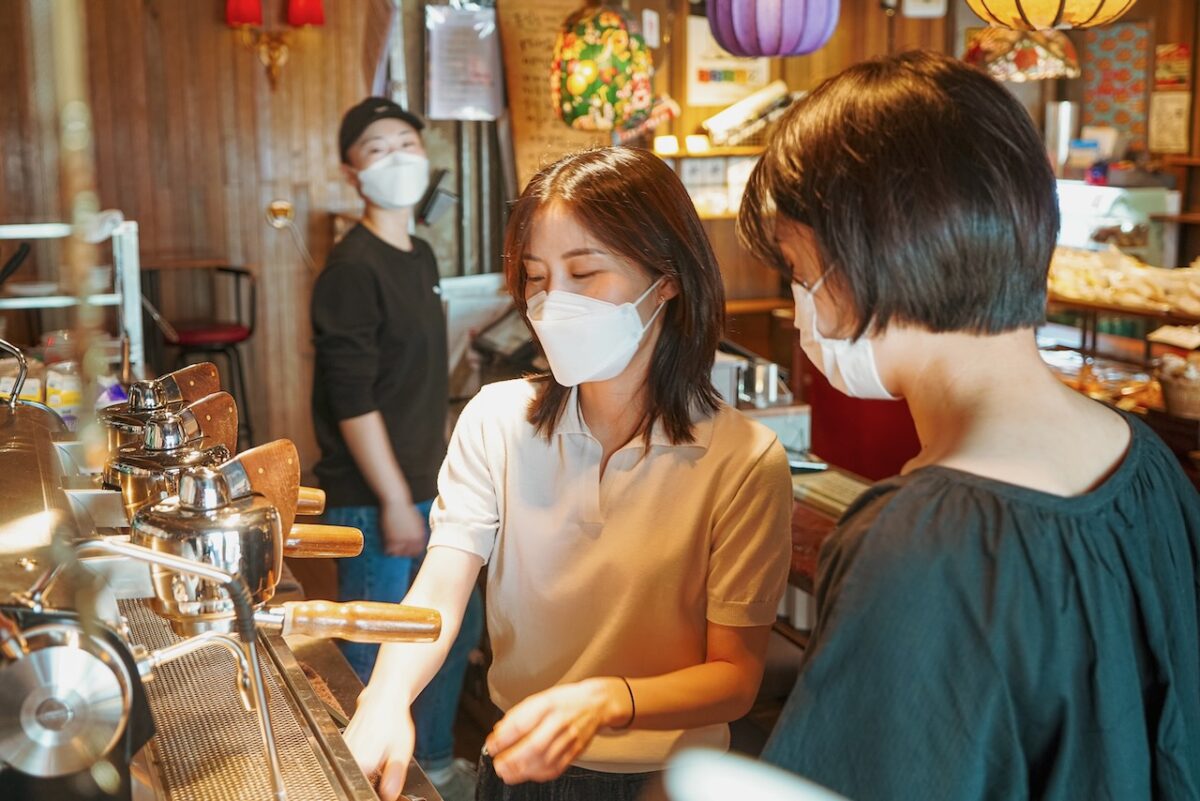
What matters is eagerness to improve
To convey “value that’s more than just taste”, Fritz Coffee also places emphasis on staff’s motivation and attitude toward work.
“A good craftsman is someone who is highly motivated and always keen to grow. Staff’s eagerness to improve themselves will always come across to customers. As a company, we must provide employees with financial stability so our staff can stay motivated to grow. That’s why we hire all our roughly 90 employees on full-time contracts.”
The company also runs other initiatives to raise its employees’ motivation as much as possible. These include an educational program geared not just toward improving coffee skills but toward cultivating professionals who share the same values. In addition, the company partners with a hospital to provide counseling for mental health support.
“All our employees are passengers on a bus called Fritz headed to the same destination. But they can press the buzzer and get off anytime if they want to go to a different place. Likewise, if they want to go together but need a break, they can get off for a while, too.”
The company’s mental health program was originally a proposal by one of its employees.
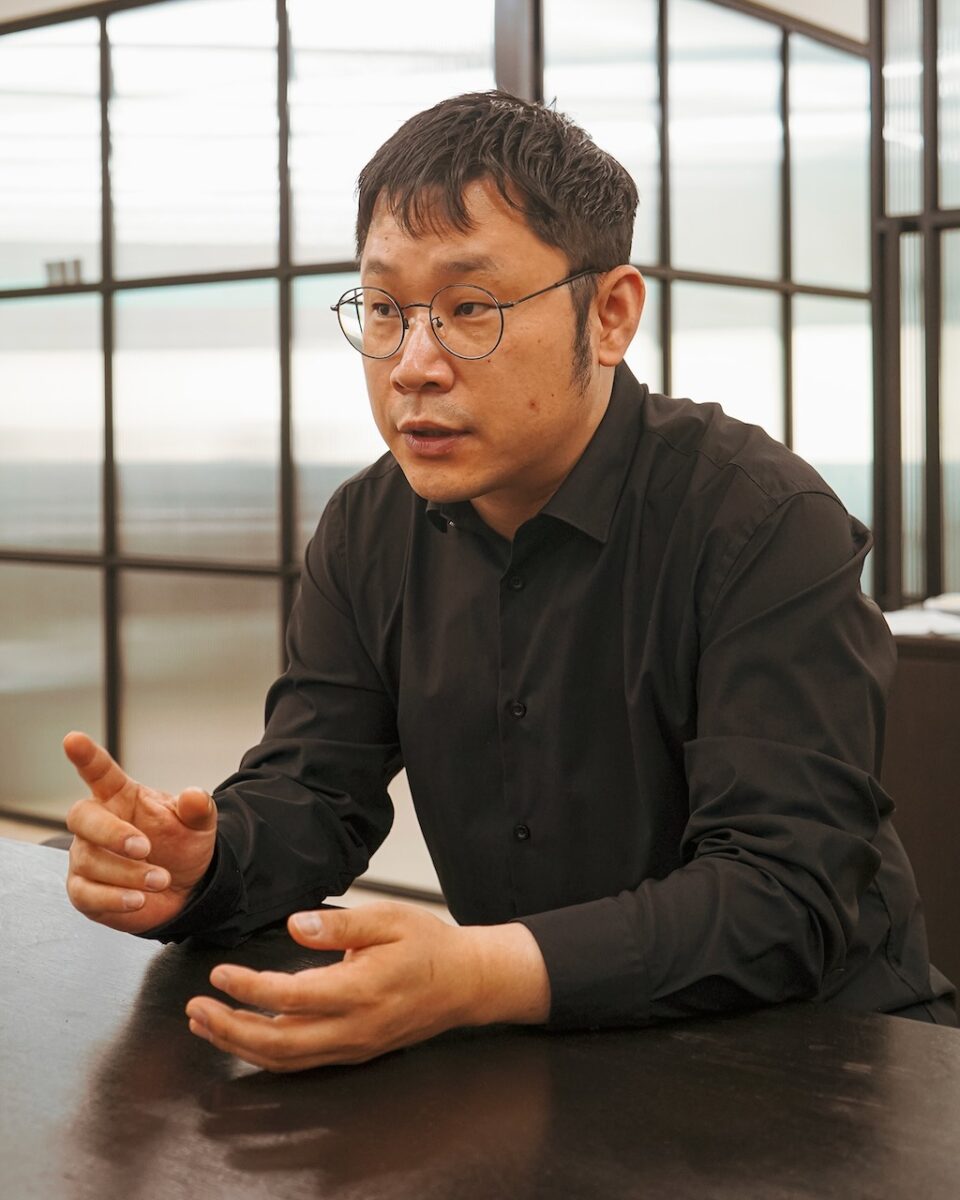
“One thing I’m proud of about Fritz Coffee is its openness to everyone’s opinion. When staff have an idea, they can work on it by themselves every step of the way, from planning to execution. If they run into a problem, we’ll discuss and figure it out together.”
The only thing the executives do when presented with a proposal is to consider it from a managerial perspective, such as whether the company needs to hire more hands to make the idea feasible.
The non-top-down, flat hierarchy sounds like an ideal organizational structure. Fritz Coffee’s commitment to equality goes beyond its internal operations. When it considers whether to sign a contract with a certain producer, it bases its decision on whether the producer is making an effort to get better in one way or another each year. “We can grow together with producers if they have good potential,” Kim says.
“Most of the time, producers don’t speak good English or have decent cupping skills. So they can’t evaluate levels of their own coffees with objective criteria, which in turn leaves them at the mercy of what the buyers tell them. That seemed very unfortunate. So we teach producers how to cup and tell them roughly how well their coffees score. For producers with good potential, our advice is something they really need.”
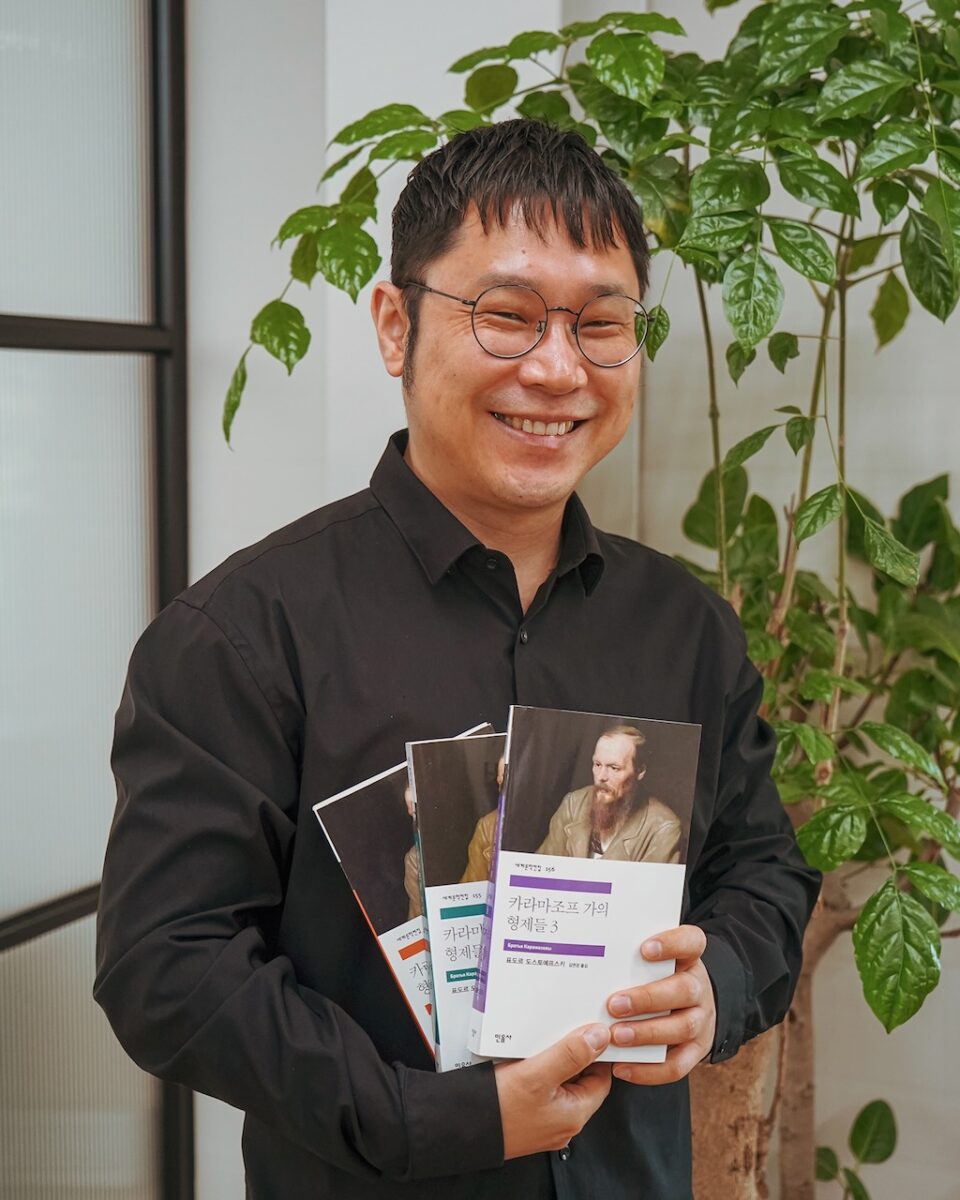
Fritz Coffee tries to build a relationship where both sides can improve one another and grow together. This attitude shows just how deeply the company cares about people in its orbit and how much faith it places in them.
“Exactly. At first, we, too, wanted to be famous and aspired to make great achievements. But not anymore. Over time, as we continued to work, we came to realize how important everyday life is. Now, we think it’s far more important to build better comradery between producers and our staff and provide delicious coffee and comfortable places so that our customers can pull off a great job themselves.”
Kim came to this view after he came across one sentence in a novel, “The Brothers Karamazov,” authored by Russian novelist Fyodor Dostoevsky. The sentence goes, “I could never understand how one can love one’s neighbors.”
“I felt an immense shock reading that sentence. Come to think of it, up until then, I was trying hard to be a good person to coffee producers somewhere far away. But I didn’t seem to care as much about people right by my side. After reading that sentence, I started to cherish my relationships with my colleagues at Fritz Coffee and our customers.”

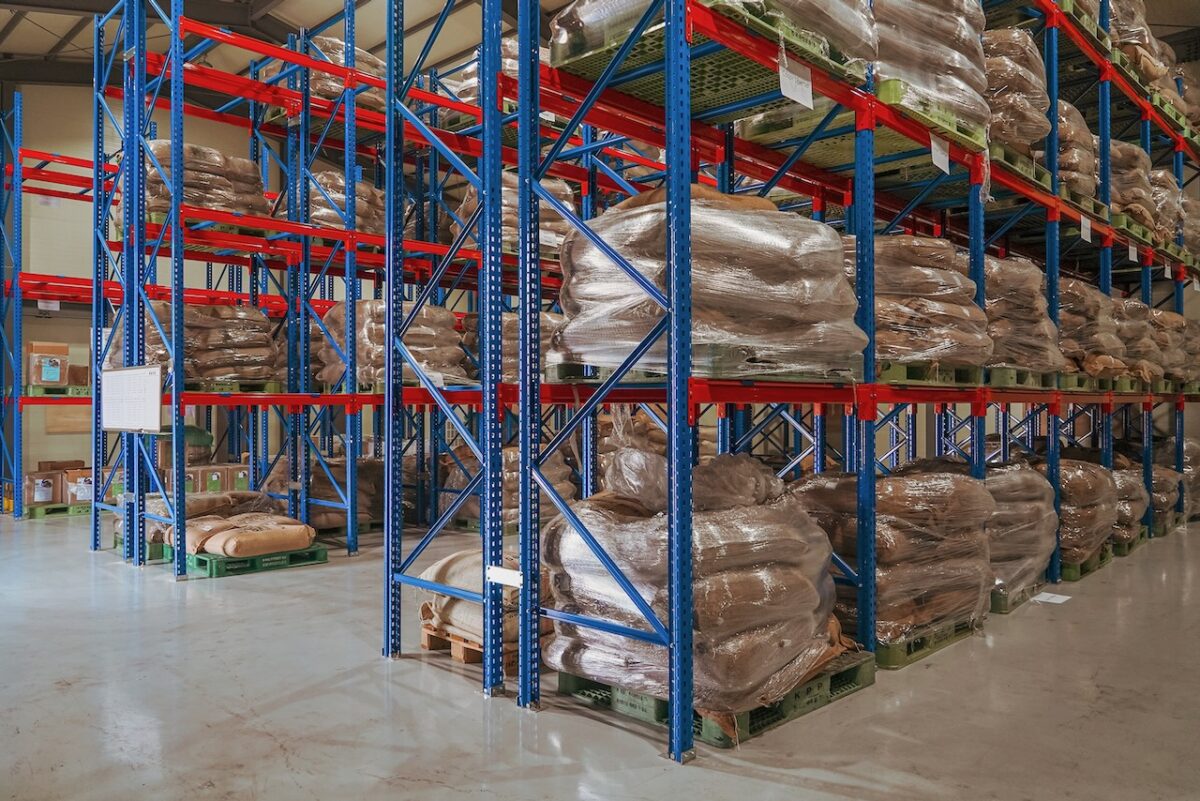
Serving consistent taste
Fritz Coffee has tried to create its ideal world, always paying attention to such issues as working styles and what businesses should stand for. Kim first became interested in direct trade while working at a cafe run by a fair-trade organization. He was fascinated by the fact that coffee links many people’s lives.
“Direct trade can stabilize producers’ livelihoods, which translates into stability for Fritz Coffee’s staff. And that in turn enables us to serve delicious coffee.”
Kim went on to work different coffee-related jobs, from barista to green coffee buyer. Now at Fritz Coffee, his main role is roasting.
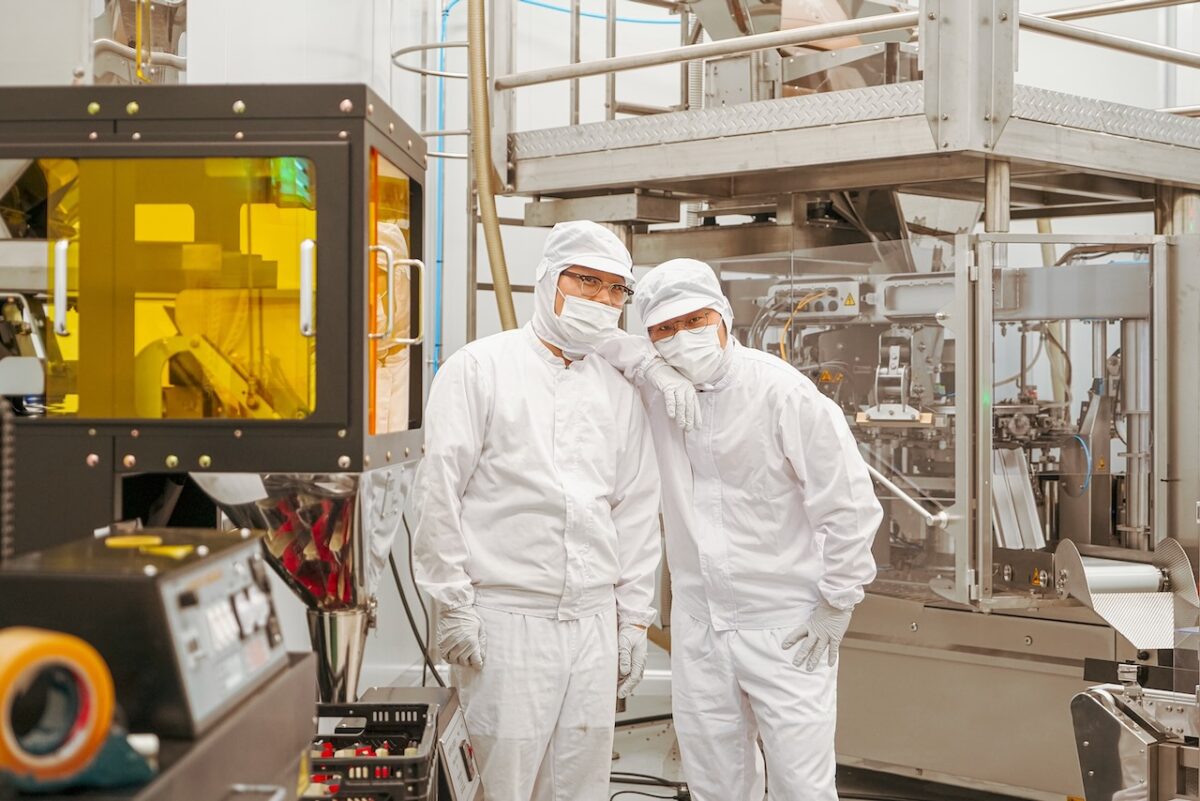
“Coffee can taste different depending on various factors, such as the farm, the variety, the processing method and the timing of harvest. Back in the day, these unique characters seemed artistic to me. And I wanted to make coffee something more artistic. Once, I even thought about moving to Costa Rica and running a farm to make the world’s most delicious coffee with my own hands. But now, I know that making such a coffee is impossible because the same coffee can taste different depending on who drinks it.”
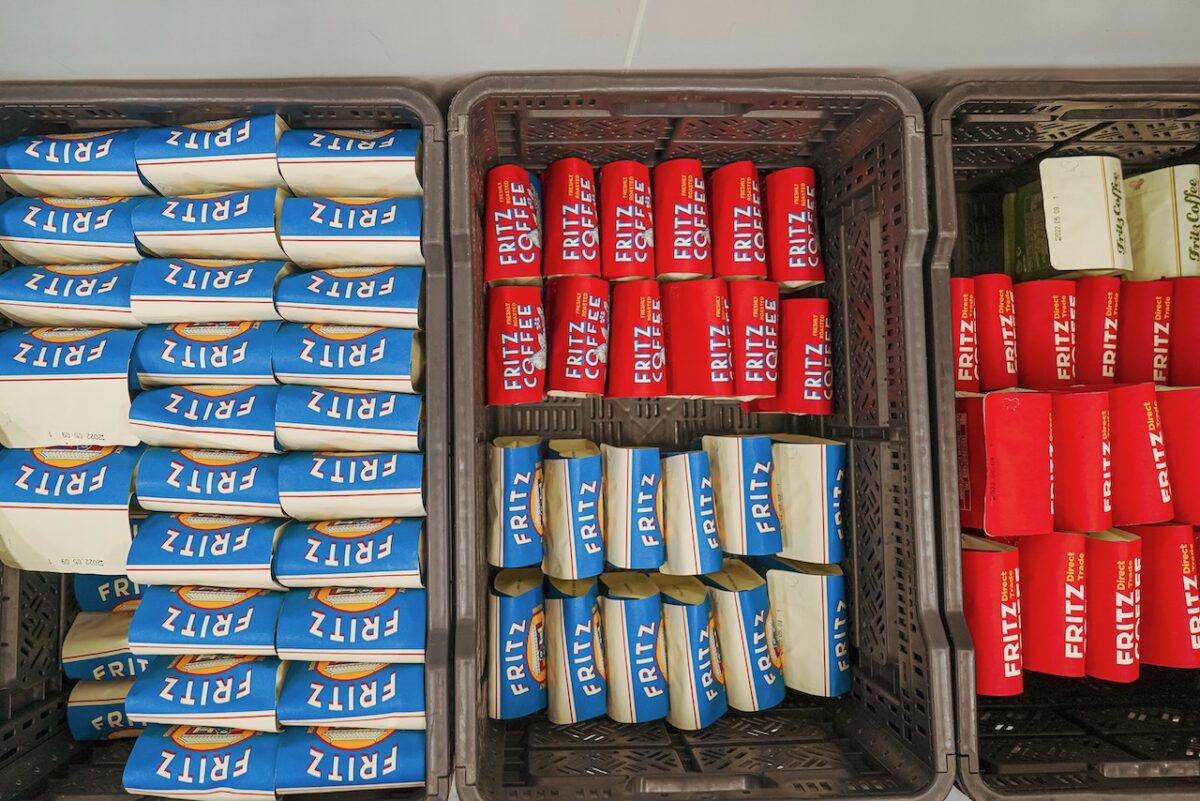
As someone responsible for Fritz Coffee’s taste, Kim places top priority on consistency. Though green coffee tastes different from lot to lot, bean to bean, he tries to bring out the same taste with his roasting skills.
“But if that’s all I do, it might get boring,” Kim laughs. “As I said earlier, coffee is inherently a diverse drink. At Fritz Coffee, we switch our single-origin lineup every two weeks. There are two options with our regular taste profiles, plus some coffees of unique varieties or processing methods. We also make experimental products three to four times a year.
Making such coffees is a great joy for us roasters. For instance, we once sold 100% robusta coffee to challenge the widely accepted theory that arabica is tastier than robusta. To everyone’s surprise, it turned out very flavorful and sweet with heavy body.”

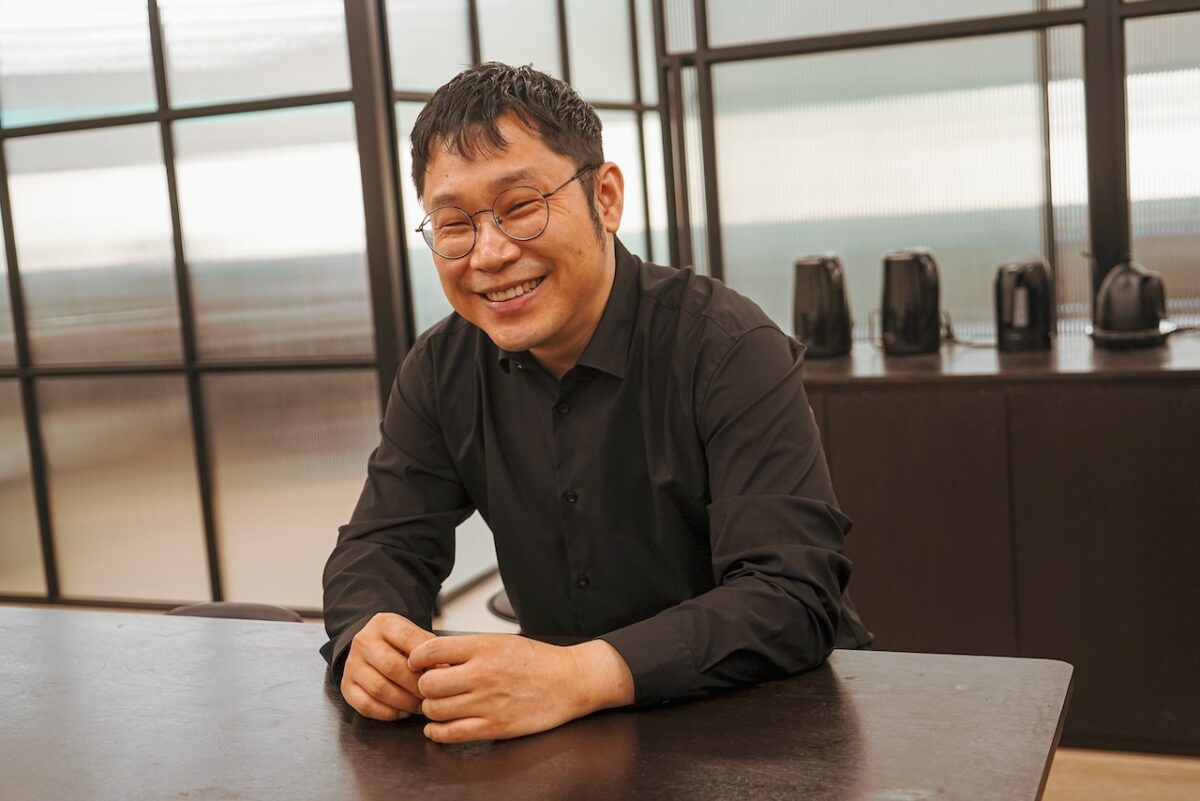
Mutual growth
From the outside, Kim appears to be enjoying his pursuit of ideals and dreams, whether with roasting or business management.
“My nickname is ‘a dreamer.’ Whenever I say something, most people give me the look like, ‘Here he goes again, putting his head in the clouds,’” Kim jokes.
For example, when a farm Kim loved faced financial difficulty, he loaned the farm his own money to help it out of the hardship, which he said surprised those around him. Recently, he started studying beer, using funds offered by the company. It would be interesting, he thought, if Fritz Coffee developed a beer and marketed it as the company’s take on a delicious brew.
“When I made the proposal, everyone seemed to have resigned themselves to it, like ‘Nobody can stop him anyway.’”
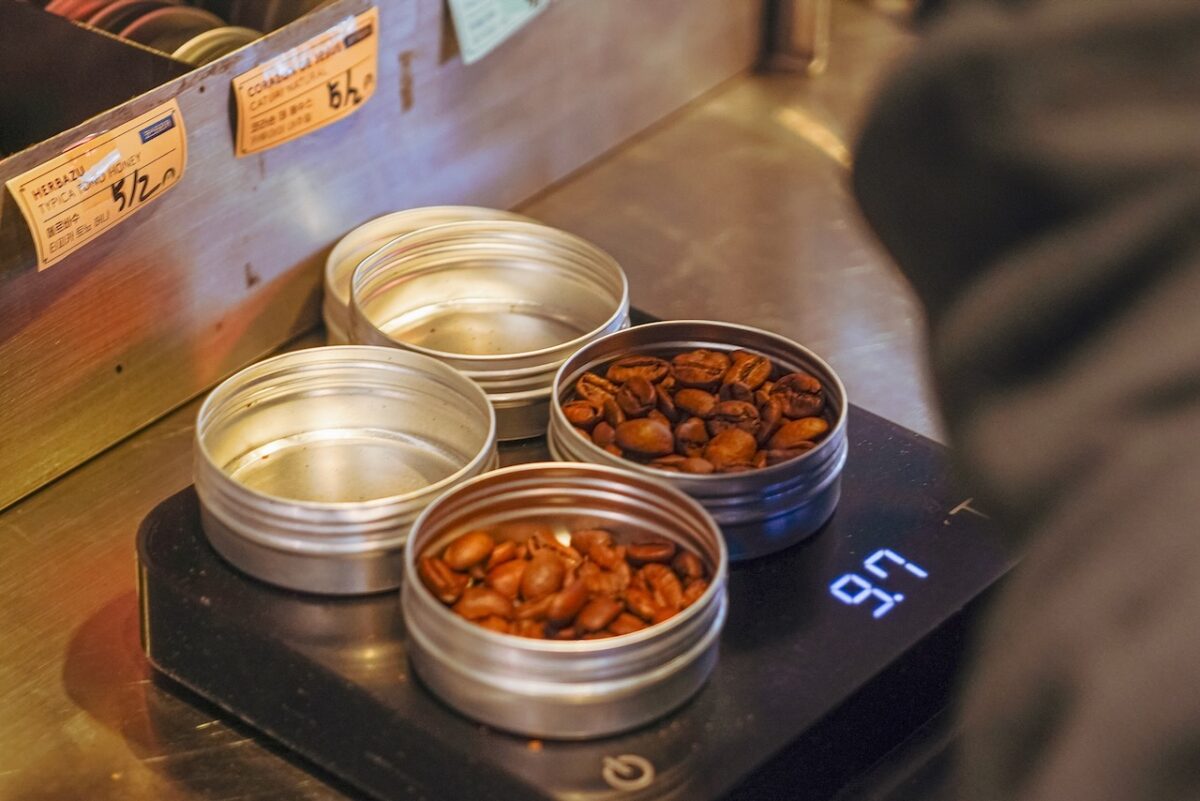
Perhaps there is an atmosphere at Fritz Coffee where staff warmly watch over dreamers and root for them. Kim has a vision of an ideal society the company is aiming to create through coffee.
“It won’t be easy. But we want to build a community of mutual support that connects producers, fellow roasters, business clients and customers. For example, we offered free coffee beans for one month to clients in Taegu, a region among the hardest hit by the Covid-19 pandemic.
Aside from that, prices of green coffee have risen sharply this year. Everywhere you look, bags of coffee beans come with a higher price tag these days. But at Fritz Coffee, we took every possible measure and decided to keep our prices unchanged without compromising the quality of products. We have no intention of raising coffee prices at our cafes, either. These decisions may cost us around 15 to 20 percent in sales. But we prioritized growing together with those who are connected with us.”
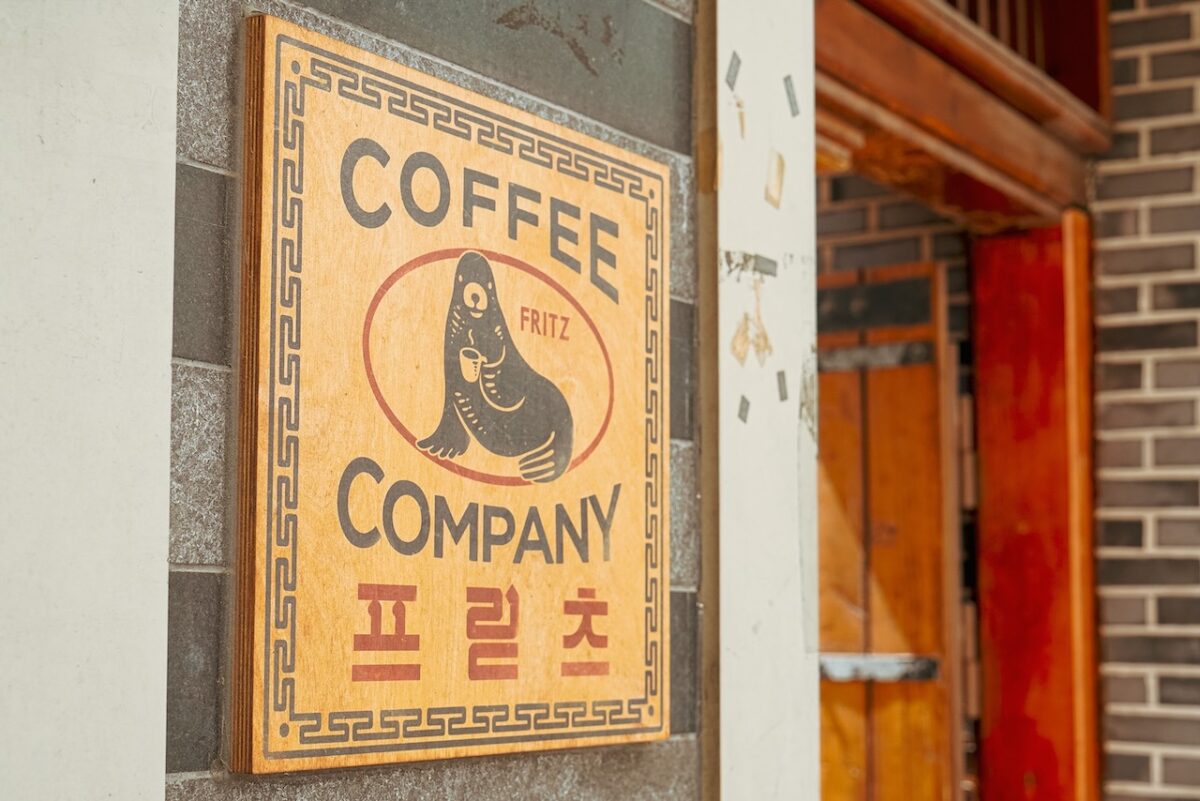
For Fritz Coffee, its own growth alone is never enough.
“That’s our definition of ‘a community.’ All companies will go out of business one day. Fritz Coffee will never be a conglomerate. The average lifespan of a business is said to be 15 to 20 years. Fritz Coffee may live to grow for longer than that. But I think if we can do a great job within 15 to 20 years, that’s a success enough for us. If so, what we should do now is to do whatever we can to create values we believe are good. If we fail, so be it. It’s okay, too, if we succeed. That’s how I think when I go about my work.”
Fritz Coffee is trying to create an ideal society and bring happiness to everyone involved in it. The company will continue to create value that’s more than just taste, with its comrades, and through a device called coffee – a device that fosters connections. It’s truly exhilarating to imagine a future that awaits us.
Originally written in Japanese by Yuki Hirakawa
Photos by Park Jiwoo
MY FAVORITE COFFEE
When I get home from work, my wife always asks me for a coffee. Sometimes, I can’t be bothered. But drinking coffee with her at the end of the day makes me feel warm and fuzzy. That coffee tastes the most delicious. Of course, I use beans from Fritz Coffee. My favorite is Villa Sarchi honey from the Herbaz farm in Costa Rica. It seems to convey the core of the producer Antonio’s heart.

Buy coffee beans from this roaster
Fritz Dohwa
- [Open]
- Mon to Fri: 8:00-22:00 Sat, Sun: 10:00-22:00
Fritz Wonseo
Fritz Yangjae
- [Open]
- Mon to Fri:8:00-20:30 Sat, Sun:10:00-20:30